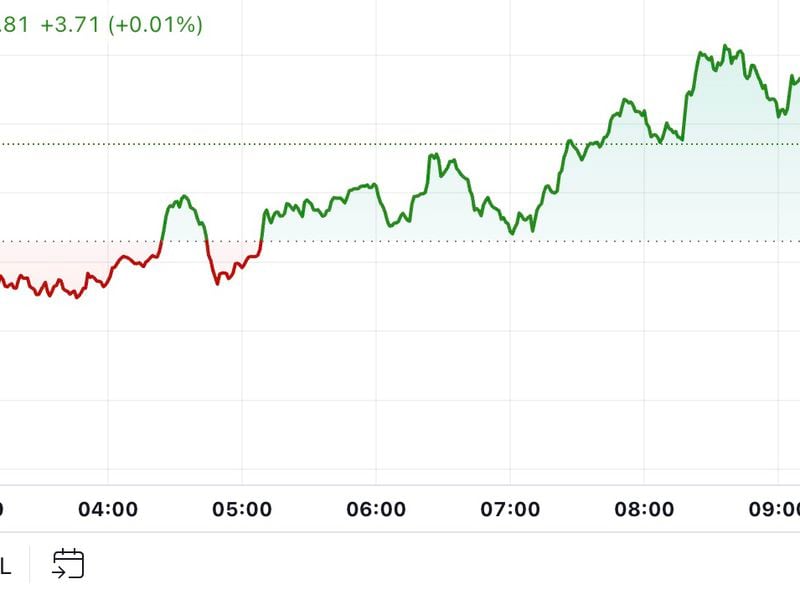This article originally appeared in First Mover, CoinDesk’s daily newsletter, putting the latest moves in crypto markets in context. Subscribe to get it in your inbox every day.
CoinDesk 20 Index: 1,8691.17 +1.14% Bitcoin (BTC): $61,425.69 +0.92% Ether (ETH): $2,381.70 +0.9% S&P 500: 5,699.94 -0.17% Gold: $2,659.14 +0.13% Nikkei 225: 38,635.62 +0.22%
Bitcoin’s slow start to its historically most bullish month continued late Thursday with a brief dip below $60,000 only to show signs of a rally ahead of the weekend. The cryptocurrency traded at around $61,300 during the European morning, an increase of just under 1% in the last 24 hours. The broader digital asset market has risen by about 1.15%, as measured by the CoinDesk 20 Index. BTC is down around 6% since the start of October and bitcoin ETFs have registered net outflows on all three days of the month so far. This is despite its reputation as being BTC’s most bullish month, with average gains of 22% since 2013.
Despite October’s reputation for being a fertile month for BTC surges, data shows that most gains don’t arrive until the second half of the month. The second and third days of October have ended in green just six times since 2013 before recovering in the second week, and large movements are generally in the third week, CoinGlass data show. Price jumps of as high as 16% generally appear after Oct. 15. However, this year bitcoin bulls must also consider the macroeconomic factors weighing on risk assets. Escalating tensions in the Middle East have seen investor sentiment shift toward oil and gold.
Geopolitical tension and the upcoming U.S. presidential election will likely underpin the ‘debasement trade,’ and this favors both bitcoin and gold, JPMorgan said in a research report on Wednesday. “A Trump win in particular, apart from being supportive of bitcoin from a regulatory point of view, would likely reinforce the ‘debasement trade’ both via tariffs (geopolitical tensions) and via an expansionary fiscal policy (‘debt debasement’),” analysts wrote. If the “Trump trade” plays out in a similar way to 2016, there should be higher U.S. Treasury yields, a stronger dollar, U.S. stock market outperformance, in particular banks, and tighter credit spreads, JPMorgan said. This shift has not happened yet, with only a small move higher seen in these markets.
The chart shows monthly changes in bitcoin’s yen-denominated prices.
The long tails attached to the previous two candles suggest seller exhaustion near the previous record high of 7.79 million JPY reached in November 2021.
The rebound from the previous peak suggests renewed bullish price action ahead.
Source: TradingView
– Omkar Godbole


























